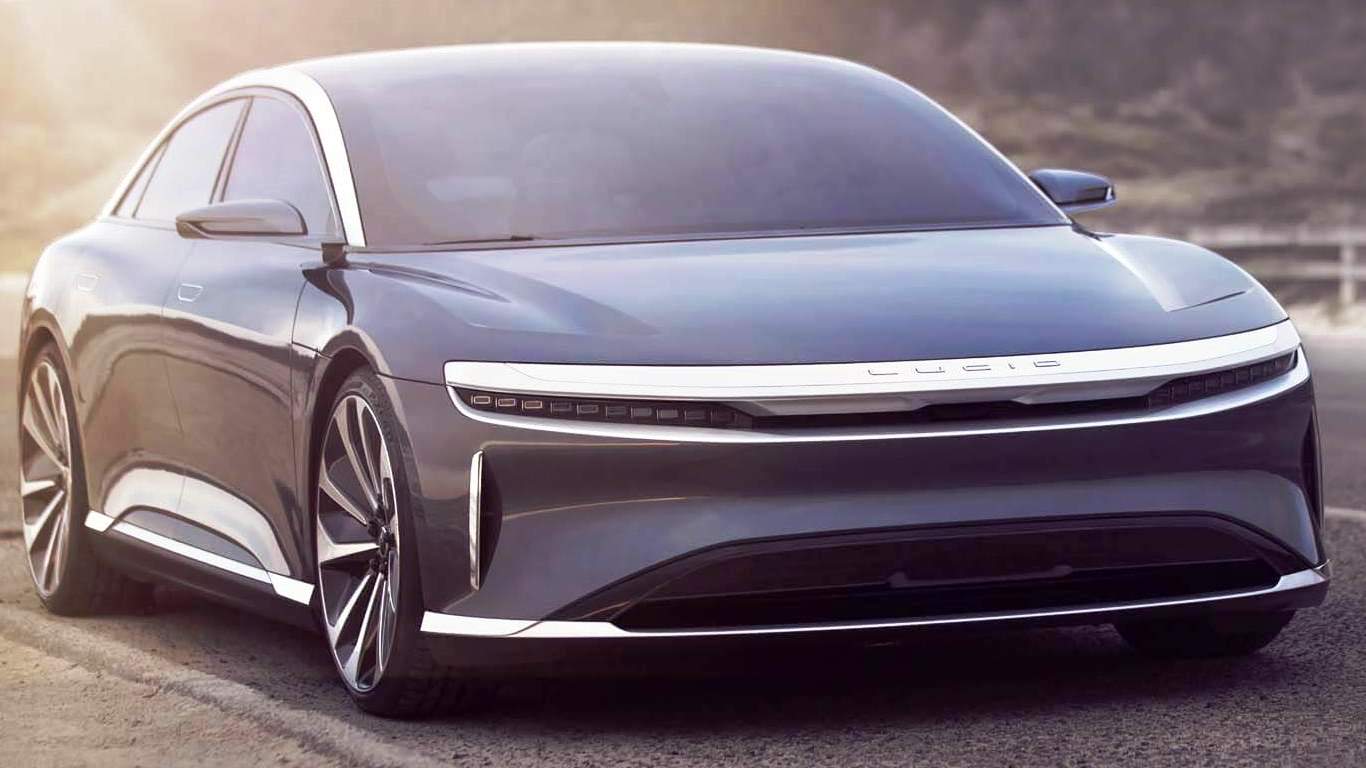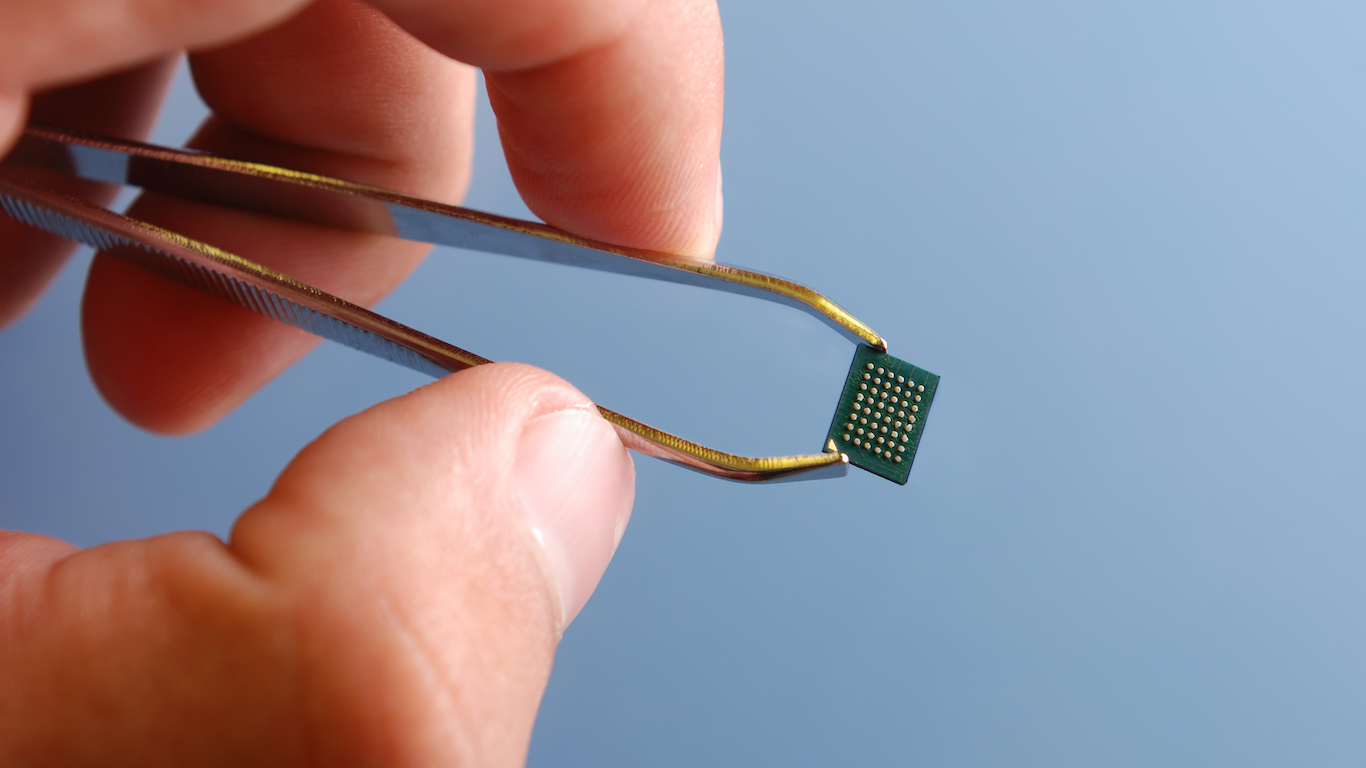
It’s not every industry that invites in a new player that could bigfoot all the other participants. Yet, Lucid Motors CEO Peter Rawlinson told CNBC’s Jim Cramer Tuesday that he would “welcome the competition” from Apple Inc. (NASDAQ: AAPL) if the world’s most valuable company decides to go into the auto business.
Exactly how competition from a company with nearly $80 billion in cash is good for Lucid isn’t immediately apparent. The startup electric vehicle (EV) maker announced in late February that it is going public in the second quarter of this year, following a reverse merger with Churchill Capital Corp. IV (NYSE: CCIV), a special-purpose acquisition company (SPAC), that is showering Lucid with net proceeds of $4.4 billion once the largest-to-date EV business combination is completed.
Earlier this week, Volkswagen indicated that it plans to construct six battery factories over the next decade at a cost estimated to be around $29 billion. And VW is just the latest of the traditional auto companies to throw serious money at the EV market. GM and Ford have both spent billions on developing their first EVs and both expect to electrify their fleets, GM by 2035 and Ford in Europe by 2030.
The global mobility market is 20 times larger than the global market for smartphones: $10 trillion compared to $500 billion, according to Morgan Stanley’s Karen Huberty, or 12.5 times larger than a smartphone market worth $715 billion, according to Mordor Intelligence. As Huberty has pointed out, Apple owns a third of the global market for smartphones and would need just a 2% share of the mobility market to double its value.
Keeping that in mind helps put another of Rawlinson’s comments into perspective: “Ultimately, you know, this is a technology race. Tesla recognizes that and Lucid recognizes that, and I think that’s what differentiates [EV makers from] so many of the traditional car companies.”
The more big brains that are working on batteries and electric drive trains and self-driving technology, the faster the EV industry will advance and the better the smartest and nimblest will fare financially. As Rawlinson sees it, “There’s no such thing as an EV market. This is a market for cars and EVs will penetrate and completely fill that.”
What Rawlinson doesn’t say is when that will happen. The Washington Post on Tuesday published an op-ed by columnist Charles Lane who offered a “reality check” on the impact that EVs are going to have on reducing carbon emissions and slowing climate change. Lane focuses on two numbers: the number of vehicles currently in the U.S. light duty (cars, SUVs, pickups) fleet (281.4 million) and how many years it will take to convert 90% of that fleet to EVs (19.6 years, if every light vehicle sold beginning yesterday were an EV).
Even if that were miraculously to happen, it is likely that by 2040, 51% of the U.S. grid would still use coal (11%) or natural gas (40%) to generate electricity.
Electrifying the global light vehicle fleet is important but will not be decisive. Only 14% of 2010 global greenhouse gas emissions were attributed to transportation, while in the United States, 28% of 2018 emissions were attributed to transportation.
As Lucid’s Rawlinson says, “there’s always plenty of room for new entries” in the mobility and EV markets because there is plenty of work to be done and that work is going to cost tens of billions. Adding Apple to the roster can only be a good thing.
Are You Still Paying With a Debit Card?
The average American spends $17,274 on debit cards a year, and it’s a HUGE mistake. First, debit cards don’t have the same fraud protections as credit cards. Once your money is gone, it’s gone. But more importantly you can actually get something back from this spending every time you swipe.
Issuers are handing out wild bonuses right now. With some you can earn up to 5% back on every purchase. That’s like getting a 5% discount on everything you buy!
Our top pick is kind of hard to imagine. Not only does it pay up to 5% back, it also includes a $200 cash back reward in the first six months, a 0% intro APR, and…. $0 annual fee. It’s quite literally free money for any one that uses a card regularly. Click here to learn more!
Flywheel Publishing has partnered with CardRatings to provide coverage of credit card products. Flywheel Publishing and CardRatings may receive a commission from card issuers.
Thank you for reading! Have some feedback for us?
Contact the 24/7 Wall St. editorial team.
 24/7 Wall St.
24/7 Wall St.



